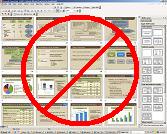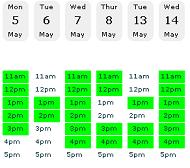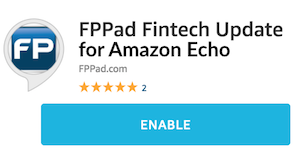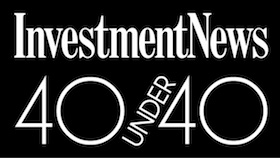 Part of what I have been working on over the last week is a presentation I’m going to deliver in July to a group of specialty physicians. Since I consider myself technologically savvy and a creative user of presentation software (ok, yes, I still use PowerPoint due to my history with it), I’ve looked for resources on how to design and deliver effective presentations.
Part of what I have been working on over the last week is a presentation I’m going to deliver in July to a group of specialty physicians. Since I consider myself technologically savvy and a creative user of presentation software (ok, yes, I still use PowerPoint due to my history with it), I’ve looked for resources on how to design and deliver effective presentations.
Most of us are very familiar with the common characteristics that plague most one hour presentations. There’s a title slide, introduction, an outline overview, all followed by a gratuitous spray of bullet points, hard-to-read graphs, and concluded with yet more bullet points. Thank you, the end!

 Increased Internet bandwidth, webcams, and conference technology has definitely impacted an adviser’s ability to engage clients that may be located in another state, country, or even continent. Cisco has taken video conferencing technology even further with its introduction of
Increased Internet bandwidth, webcams, and conference technology has definitely impacted an adviser’s ability to engage clients that may be located in another state, country, or even continent. Cisco has taken video conferencing technology even further with its introduction of  A few days ago I encountered an
A few days ago I encountered an  Davis Janowski from
Davis Janowski from 
 At the end of April, Charles Schwab and Texas Tech University announced the creation of a Schwab Technology Complex on the University’s campus, and also named Danielle Winchester as the first Schwab Research Scholar.
At the end of April, Charles Schwab and Texas Tech University announced the creation of a Schwab Technology Complex on the University’s campus, and also named Danielle Winchester as the first Schwab Research Scholar. Financial advisers create large volumes of data due to the comprehensive nature of the financial planning process. Portions of the material generated include documents that can easily be searched, such as Word documents of financial plans, Excel worksheets with calculations, and email correspondence with clients and allied professionals.
Financial advisers create large volumes of data due to the comprehensive nature of the financial planning process. Portions of the material generated include documents that can easily be searched, such as Word documents of financial plans, Excel worksheets with calculations, and email correspondence with clients and allied professionals. As a busy financial planning professional, I send out many requests for meetings, conference calls, and other events throughout each week. Some are fairly easy to schedule, such as one-on-one time with a co-worker, but every so often there are times where I need to send a request to numerous individuals and make a futile attempt to work around their own busy schedules.
As a busy financial planning professional, I send out many requests for meetings, conference calls, and other events throughout each week. Some are fairly easy to schedule, such as one-on-one time with a co-worker, but every so often there are times where I need to send a request to numerous individuals and make a futile attempt to work around their own busy schedules. I have invested many months in an attempt to make the production of quarterly reports much more of a turn-key process in my firm. I am happy to say that by lunchtime on April 2nd, I finished all the quarterly reports and associated workpapers that will be provided to the planners and, ultimately, to our clients. (Update, April 3: Well, I discovered errors within the reports, but they are due to a custom plugin to our Portfolio Management Software,
I have invested many months in an attempt to make the production of quarterly reports much more of a turn-key process in my firm. I am happy to say that by lunchtime on April 2nd, I finished all the quarterly reports and associated workpapers that will be provided to the planners and, ultimately, to our clients. (Update, April 3: Well, I discovered errors within the reports, but they are due to a custom plugin to our Portfolio Management Software,  Coming from the software industry, I had a mandatory introduction to the world of version control software (VCS). Essentially, version control is the concept of securing and archiving many versions of the same file in a multi-user work environment. However, version control shouldn’t exist solely in the domain of software engineers. In fact, financial planning firms can benefit tremendously from implementing a form of version control.
Coming from the software industry, I had a mandatory introduction to the world of version control software (VCS). Essentially, version control is the concept of securing and archiving many versions of the same file in a multi-user work environment. However, version control shouldn’t exist solely in the domain of software engineers. In fact, financial planning firms can benefit tremendously from implementing a form of version control.


